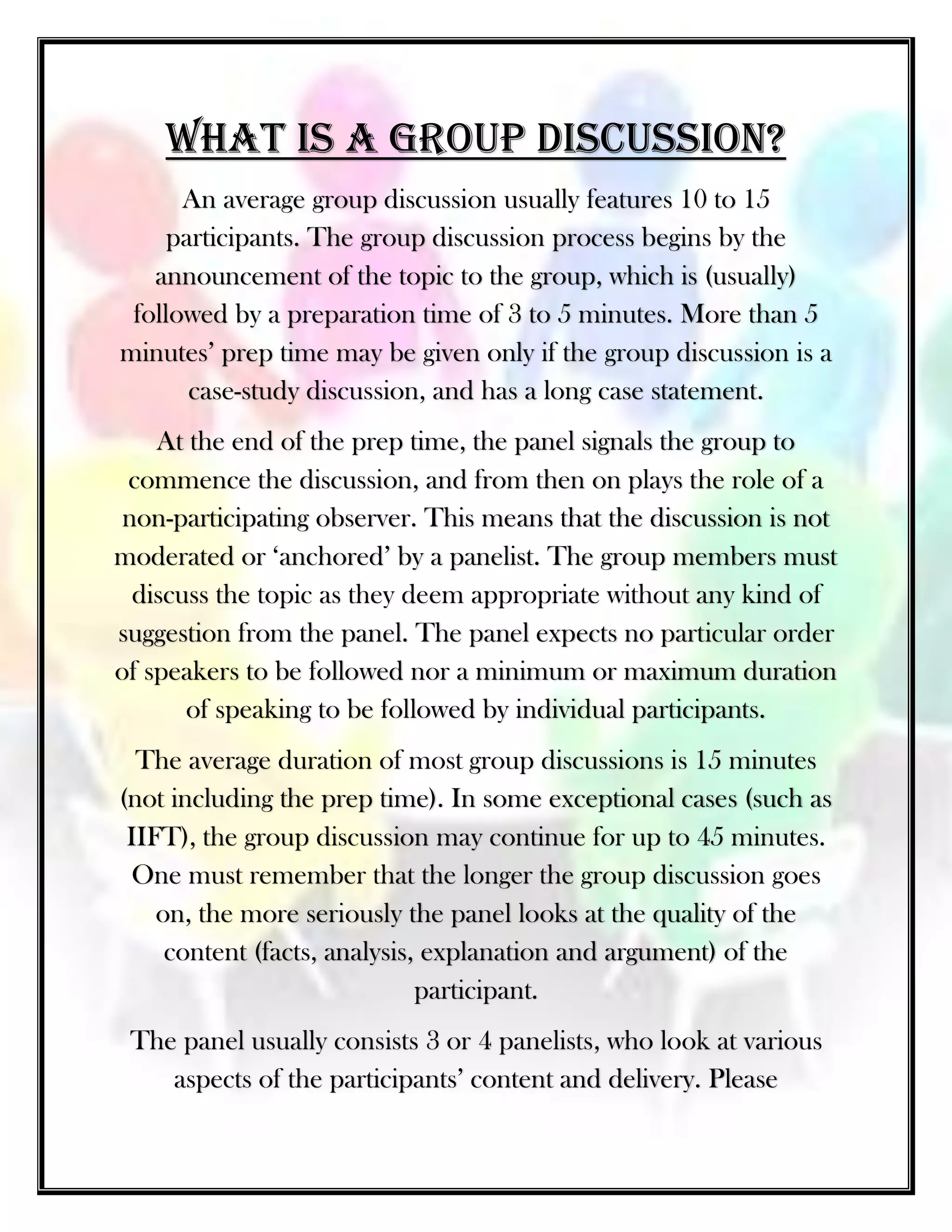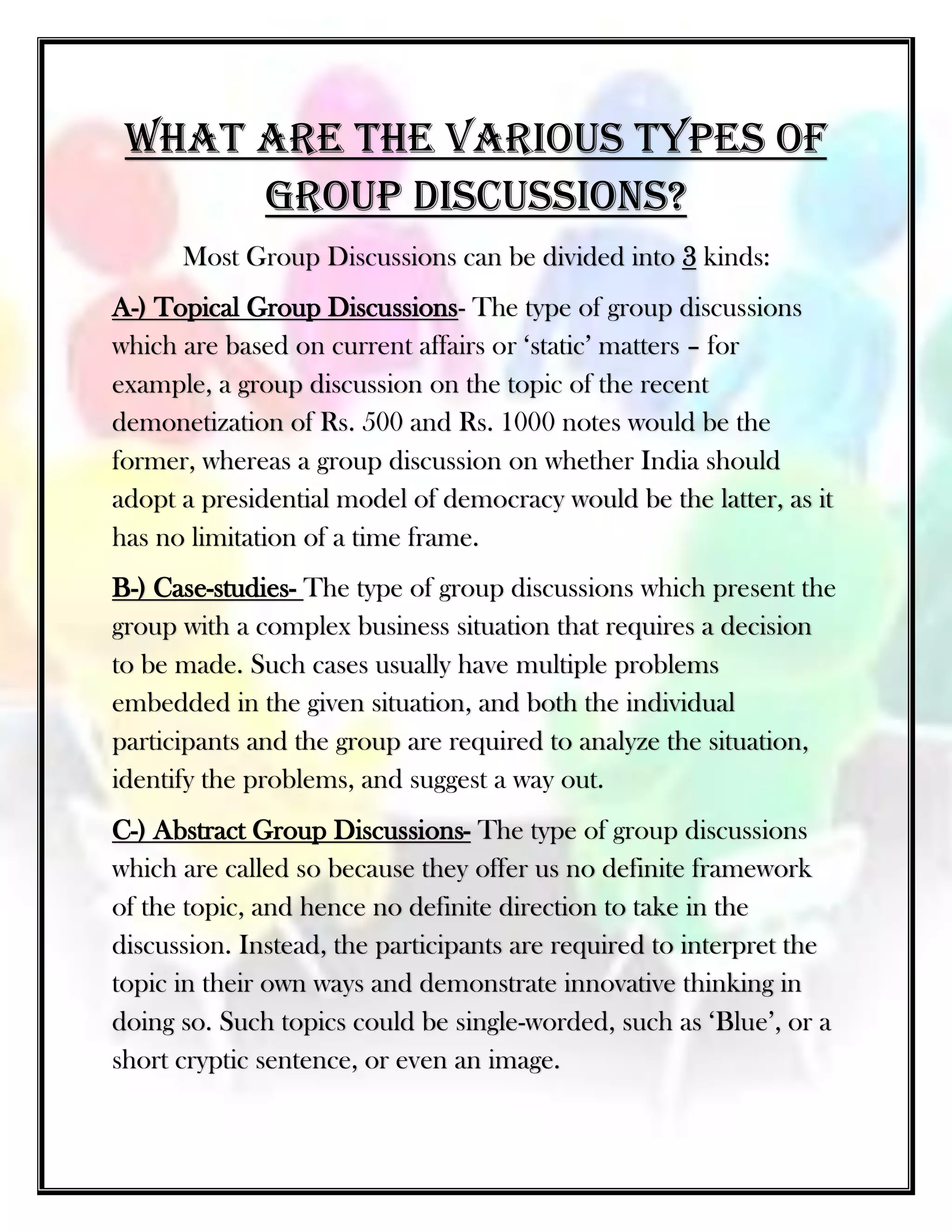An average group discussion involves 10-15 participants discussing a topic for 15 minutes. The panel observes the discussion without participating and may ask participants to summarize at the end. Group discussions are evaluated based on both individual qualities like content, analytical skills, and communication skills, as well as group skills like listening, leadership, body language, and group behavior. The goal is to assess participants' suitability for management roles.






